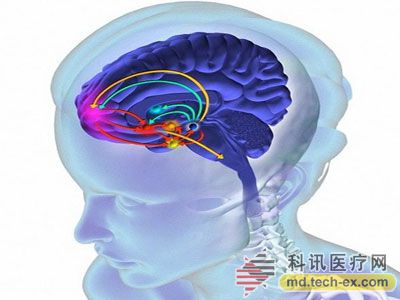Release date: 2015-12-25

According to foreign media reports, can we implant memories in the brains of other people in the future? In the sci-fi movie "Star Trek", a similar device - "spiritual fusion instrument" appeared. Recently, American neuroscientists were able to implant electrodes in the brain to test how to restore brain memory content, and soon turn the science fiction episode into reality. !
The brain implant technology replicates memory in other human brains. Research teams from the University of Southern California and the University of Pennsylvania began testing the technology for patients with epilepsy, focusing on the hippocampus, a hippocampus associated with memory formation. Part of the brain.
The hippocampus is able to collect sensory information and then transform into short-term memory. Between 15 and 30 seconds, the hippocampus can also form a more continuous memory, but only if the hippocampus storage memory content is accessed. Usually, patients with memory defects are mainly hippocampus. American brain implant specialist Ted Berger leads a research team interested in two special areas of hippocampus, called CA3 and CA1.
The research team believes that the transmission of electrical signals from CA3 to CA1 is particularly important for the formation of memory, so they try to create a similar signal to restore the function of the hippocampus. To do this, the researchers monitored the brains of 12 epilepsy patients and performed memory training, including: memory images to see how CA3 and CA1 interact. In the end, they developed a mathematical model that predicts the CA3 signal model that activates CA1, with a prediction accuracy of 80%.
The team believes that the electrical stimulation provided by the brain implant electrodes is similar to the critical CA3 signal and can improve the memory of patients with hippocampus injury. It is reported that the study is based on a mouse experiment conducted by Dr. Berger, when he and his team of researchers trained mice to complete the memory learning task and put a lever in the experiment instead of rewarding.
Researchers from the University of Pennsylvania also performed brain implant electrodes, but the method of operation was slightly different. Their target area is not the hippocampus of the brain, but the electrodes are implanted close to the medial temporal lobe of the hippocampus. By electrically stimulating the area to improve the patient's memory, they try to recall the missing memory. However, experiments have confirmed this method for Unhealthy people in health can damage their memory.
In this study, the team monitored brain activity in 28 patients with epilepsy, during which they were asked to complete a memory test task. The researchers then developed an algorithm that analyzes brain signals to predict which participants may have forgotten the message. content.
The team said that activating the electrodes when the patient is likely to forget the memory will effectively improve memory by 140%. They are currently seeking approval and plan to perform more brain implant electrode testing experiments.
Source: Tencent Science
Varicella Vaccine,Intranasal Varicella Vaccine Injection,Varicella Vaccine Final Bulk,Varicella Vaccine Live
Changchun BCHT Biotechnology Co. , https://www.ccbcht.net